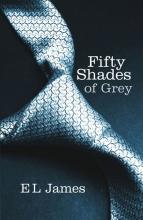Books
ANYONE WHO LIVES in Christian community or participates in congregational life knows that it is a holy mess. A group of flawed individuals trying to do "life together" can bring out the worst in one another. But that's precisely where God calls us to be.
In our hyperindividualistic culture, it's often difficult to remember that God has created us to be in community. Christian faith and discipleship, from the beginning, have been shaped not by going at it alone but by engaging in ancient and contemporary communal experiences. The first house churches and the formation of communities among the early desert fathers and mothers, as well as today's megachurches, parachurch organizations, and new monastic groups, all point to how we long to be connected to God and with one another.
Our faith and character are refined by the miraculous gifts of grace, reconciliation, and forgiveness made available to us in community. In such a demanding and disconnected world, it is indeed a miracle when two or more gather to break bread and give of themselves in service to God and one another.
Here are some books to help us along the Way, as we seek to deepen our understanding of what it means to be in communion with Christ and with each other.
In 2009 I was co-leading a new intentional community in Washington, D.C. Our nascent group endured many struggles, including interpersonal issues, conflicting visions and goals, and the involuntary removal of a community member. How I wish The Intentional Christian Community Handbook: For Idealists, Hypocrites, and Wannabe Disciples of Jesus (Paraclete Press), by David Janzen, was available when we first began our journey.
Books
Faith meets science
- Scientist Katharine Hayhoe and her spouse, evangelical pastor and writer Andrew Farley, gently and wisely respond to the concerns of those who deny the reality of climate change in A Climate for Change: Global Warming Facts for Faith-Based Decisions (FaithWords). An accessible exploration of the science behind climate change and the faith-based reasons why Christians can and must act.
- Ben Lowe, of Young Evangelicals for Climate Action, describes the rise of climate leadership on Christian college campuses in Green Revolution: Coming Together to Care for Creation (IVP Books).
- In Global Warming and the Risen LORD: Christian Discipleship and Climate Change (Evangelical Environmental Network), Jim Ball offers biblical and spiritual resources needed to meet the challenge.
- No Oil in the Lamp: Fuel, Faith and the Energy Crisis (DLT Books), by Andy Mellen and Neil Hollow, is part science manual, part Bible study and points toward a Christian theology for resource depletion and "peak oil." The unexpected foreword by the CEO of a top U.K. energy company adds depth.
- God, Creation, and Climate Change: A Catholic Response to the Environmental Crisis (Orbis Books), edited by Richard W. Miller, collects original essays by leading Catholic theologians and ethicists to give theological and biblical perspectives on our environmental crisis.
- Green Discipleship: Catholic Theological Ethics and the Environment (Anselm Academic), edited by Tobias Winright, is a compendium drawing on scholars from the fields of ecology, biology, history, and sociology, and includes study group aids. It also has the text of "If You Want to Cultivate Peace, Protect Creation," a January 2010 speech by Pope Benedict XVI, which can also be found at www.vatican.va.
- Sacred Acts: How Churches are Working to Protect Earth's Climate (New Society), by Mallory McDuff, looks at local churches' best practices to reverse climate change.

Nuanced or not, are Christians, especially evangelicals, perceived as being against things like peacemaking? Or is it that their version of peacemaking is backward looking toward some halcyon day of yore (or 1950s America)? At this point in the book, Rob spends a lot of time walking us through the development of justice in the Bible from “eye-for-an-eye” to “turn the other cheek.” I want you to read this chapter for yourself and make your own conclusions about what Rob sees and tell me if you see it, too.
Rob's thinking is that people are gradually cluing in to God's vision of a world without retributive violence. “Revenge always escalates,” he writes. Always.

Tripp Hudgins touched on something in his post yesterday that is essential to this discussion about Rob Bell and his book What We Talk About When We Talk About God. He wrote:
Why does Rob write this stuff? Whose side is he on? Yours. Mine. Ours … Rob is on everyone’s side. He’s trying to live like the God who meets him when he’s surfing, hanging with his kids and friends, walking along the city streets, or doing just about anything.
Tripp, how can you say such a thing! “Rob is on everyone’s side”? How could Rob possibly be on the side of those who ruthlessly criticize him?!? I’m sorry my friend, but that’s just ridiculous and absurd.
And yet the ridiculous and absurd is at the heart of the Christian message. I hope that Rob is for everyone. Not because I need Rob to be on my side, nor because I need his approval or acknowledgment. (Although, I wouldn’t mind it!) Rather, I hope it’s true because at the heart of the Christian message lies the ridiculous, absurd, and even scandalous message that God is for everyone.

It's the Monday after Easter, and I couldn't think of a better day to talk about God being with us. Adam Ericksen wrote about the dance of doubt and faith on Good Friday, the challenge and beauty of embracing the fullness of the journey. Rob takes that all one step further in this chapter: With.
There is, I believe, another way to see God, a way in which we see God with us— with us, right here, right now. This isn’t just an idea to me; this is an urgent, passionate, ecstatic invitation to wake up, to see the world as it truly is.
(Kindle Locations 1201-1203)
Suddenly I have “Right Here, Right Now” by Jesus Jones playing in my head. Excuse me for being a child of the 80s.
My take-away? This God doesn't choose sides like we do.

(The Controversial figure Rob Bell has created another firestorm with his latest provocative book What We Talk About When We Talk About God. Raven Foundation Education Director, Adam Ericksen and Tripp Hudgins will share our thoughts on the book in this blogalogue. We invite you to join the discussion by leaving a comment below.)
Tripp Hudgins always gets me thinking. He is right that Rob’s chapter “Open” in What We Talk About When We Talk About God is about science and religion but that it’s also not about science and religion. This is the longest chapter of the book, and it’s full of scientific information that points to the mystery of the material world. What’s the point? As Tripp states, Rob is “asking for a little humility. He’s asking for a little poetic imagination. He’s asking for curiosity.”
That’s the point of the next chapter, too. Titled “Both,” in this chapter Rob points out a major problem we have with “God-talk.” That problem is language. Tripp set me up for this at the end of his post by asking, “Are words actually enough? Ha! Write about that. Words. Words. Words.”
When I was in seminary I learned about apophatic theology, or negative theology. It tries to define God by what God is not. A 9th century apophatic theologian named John Scottus Eriugena asserted, “We do not know what God is. God Himself does not know what He is because He is not anything. Literally, God is not because He transcends being.”

A revealing thing happens when you remove yourself from the daily drum of politics and become a mere observer. I did just that last year, during some of the most divisive moments of the presidential election. Sitting back and watching the deluge of insults and accusations that feeds our political system, I witnessed the worst of us as a nation. And I came to the conclusion that it’s time to reframe our priorities.
When did we trade the idea of public servants for the false idols of power and privilege? When did we trade governing for campaigning? And when did we trade valuing those with the best ideas for rewarding those with the most money?
We’ve lost something as a nation when we can no longer look at one another as people, as Americans, and — for people of faith — as brothers and sisters. Differing opinions have become worst enemies and political parties have devolved into nothing more than petty games of blame.
During a three-month sabbatical, observing this mess we’ve gotten ourselves into, I prayed, meditated, read — and then I put pen to paper. The resulting book gets to the root of what I believe is the answer to our current state of unrest. It is not about right and left — or merely about partisan politics — but rather about the quality of our life together. It's about moving beyond the political ideologies that have both polarized and paralyzed us, by regaining a moral compass for both our public and personal lives — by reclaiming an ancient yet urgently timely idea: the common good.

This is going to be a problem. This chapter on faith and science and quantum mechanics is going to be a problem. Why? Well, because this faith and science thing has been done to death. Did you know that the Vatican has an observatory and that one of the authors of Red Shift Theory was a Jesuit? Yep. The famed Scopes Monkey Trial was more than a century ago and those of us in the Protestant Mainline have long ago made peace with it. The Vatican apologized for the oppression of scientists, most specifically it said that Galileo was right. Scientific inquiry and Biblical interpretation are not the same thing. So what's Rob's purpose for this chapter?
Well, it's manifold. He's an evangelical. He's writing in some ways to other evangelicals, specifically those who have felt cut off from the tradition. Here in the States, the classic evangelical line holds echoes of the arguments used during the Scopes Monkey Trial. Some in that Christian tradition are still fighting that fight. Heck, some progressives are, too. Powerful (if false) dichotomies have been established.
New Abolitionists
Refuse to Do Nothing: Finding Your Power to Abolish Modern-Day Slavery, by Shayne Moore and Kimberly McOwen Yim, is a guide to how regular people, juggling the everyday demands of family and work, can become activists fighting human trafficking and slavery. IVP Books
Leaders of the Faith
Different writers pay tribute to the work and witness of Catholic sisters in Thank You, Sisters: Stories of Women Religious and How They Enrich Our Lives, edited by John Feister. These strong, faithful women are inspiring, no matter your tradition. Franciscan Media

Among my must reads are the Sunday New York Times Book Review and other book reviews I come across in various media outlets. There are too many books being published that I would love to read, but just don’t have the time. So, I rely on reading book reviews as one way of keeping in touch with what’s being written. Here are my picks from this week’s books.

"Can we watch a video with that guy who has the weird hair and the dark rimmed glasses?" -Member of My Youth Group
"Love wins the in the sense that God’s will is the reconciliation of all things—the soul, the body, the earth, the cosmos, and everything in it." -James Wellman, Rob Bell and a New American Christianity, 59.
American Christianity is experiencing a theological shift. Many have tried to explain it, sometimes making the shift far more confusing than it actually is. Fortunately, the shift can be explained quite simply, and while it may be new to American Christianity, it is actually very old. Indeed, it dates back 2,000 years. The shift boils down to the two theological axioms of the New Testament, both found in the letter 1 John:
“God is light and in him there is no darkness at all” (1:5) and “God is love” (4:8 and 16).
Those statements, while simple, are far from simplistic. John was bold in affirming these statements. He knew he had to give it to us straight – probably because he and the other disciples had a hard time understanding what Jesus meant in his teachings and parables. So, John cut to the chase and simply claimed that Jesus reveals, “God is love and God is light. There is absolutely no darkness within God.”

Among my must reads are the Sunday New York Times Book Review and other book reviews I come across in various media outlets. There are too many books being published that I would love to read, but just don’t have the time. So, I rely on reading book reviews as one way of keeping in touch with what’s being written. Here are my picks from this week’s books.

In The Last Shot, Frey has written a compassionate book. It is truly a compass that guides us into the sneakers and the hearts of children growing up in the housing projects of Coney Island, New York — inner-city kids defying the law of nature by growing in a tough place like flowers growing through concrete.
It is truly passionate about basketball and life, basketball as it is loved by children, coaches, and communities ... life as it is felt through the hearts of people who know human beings are human beings and not commodities.

Among my must reads are the Sunday New York Times Book Review and other book reviews I come across in various media outlets. There are too many books being published that I would love to read, but just don’t have the time. So, I rely on reading book reviews as one way of keeping in touch with what’s being written. Here are my picks from this week’s books.

Ask Kelley Taylor, a Southern Baptist college student, if she's opened the steamy pages of Fifty Shades of Grey, and she has a ready response.
"Some of my friends have read it but I decided not to because I just heard about the content and didn't think it was something I should be reading," said the North Carolina State University senior, who is majoring in wildlife biology. "I think that it's kind of contrary to what the Bible says about fleeing from sexual lust and temptation."
Taylor is not alone. Many evangelical women say they wouldn't touch the best-selling book, often described as "mommy porn" because of its escapist appeal to working mothers and suburban housewives. But evangelical leaders also realize that some members of their churches and Bible studies can't resist.

“I will honor Christmas in my heart, and try to keep it all the year. I will live in the Past, the Present and the Future. The Spirits of all Three shall strive within me.”
– Ebenezer Scrooge from A Christmas Carol.
WILMINGTON, N.C. — ‘Tis the season for “Bah Humbug” and “God bless us every one,” especially as the world caps off a year of celebrations for the 200th anniversary of the birth of novelist Charles Dickens.
Starting this weekend as the Christmas season begins with Advent, cities will transform their streets to Victorian English landscapes with strolling carolers and stage different productions of Dickens' most famous yuletide work, A Christmas Carol.
A Vital Word
In I Told My Soul to Sing: Finding God with Emily Dickinson, Kristin LeMay explores in detail 25 poems as "witnesses" to Dickinson's wrestling with God. LeMay elegantly combines accessible literary analysis with her own spiritual memoir of search, doubt, and faith. Paraclete Press
Blessed Assurance
South African native Jonathan Butler has earned praise in the R&B, contemporary jazz, and gospel music fields. His latest album, Grace and Mercy, offers gentle songs that proclaim faith and hope in the midst of troubled times. Rendezvous Music

VATICAN CITY -- Their lives steeped in intrigue, treason and lust, and set against a backdrop of luscious Italian landscapes and Renaissance masterpieces, the Borgias are probably the most famous -- or infamous -- family in the long history of the papacy.
Now, a new Italian book wants to dispel, at least in part, the “black legend” surrounding a dynasty that bore two popes as well as cardinals, poets, and warriors.
Journalist and historian Mario Dal Bello drew on documents from the Vatican Secret Archive to write his new book, I Borgia: La leggenda nera, or The Borgias: The Black Legend.
For five centuries, the Borgias have attracted writers, painters and playwrights. They have been the subject of hundreds of movies and TV productions, most recently Showtime's popular series, The Borgias.
“It's easy to understand why: sex, blood, poison, power,"" Dal Bello said. "This is already fiction material."

Among my must reads are the Sunday New York Times Book Review and other book reviews I come across in various media outlets. There are too many books being published that I would love to read, but just don’t have the time. So, I rely on reading book reviews as one way of keeping in touch with what’s being written. Here are my picks from this week’s books.

Among my must reads are the Sunday New York Times Book Review and other book reviews I come across in various media outlets. There are too many books being published that I would love to read, but just don’t have the time. So, I rely on reading book reviews as one way of keeping in touch with what’s being written.
Here are my picks from this week’s books.